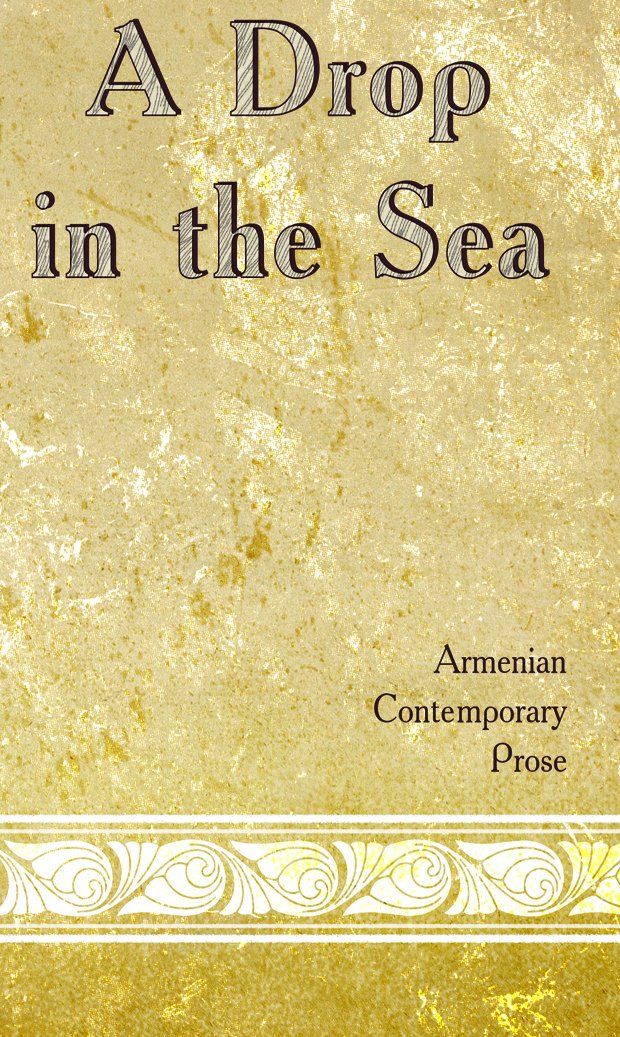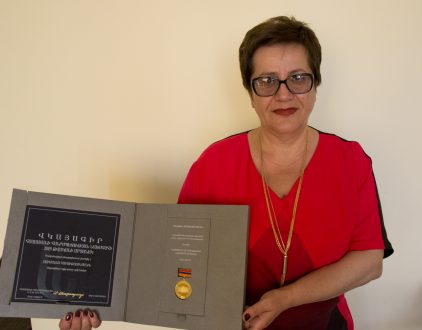The clock in the hall showed 10:45. This sunflower-sized Iranian clock was worth a dollar in the market. My aunt had gotten it for free on her way to our house as she was buying coffee—a worthless gift that she didn’t want to take home. I was staring at the plastic disk and the numbers, as big as lies, where the hands had stopped, thinking how much it would cost without the import expenses and taxes. They must have been lying around like trash on the streets of Tehran. But that cheap Iranian clock had marked a cruel transition in a man’s life—it had stopped.
“It doesn’t work. I stopped it,” my uncle’s wife said with a plaintive tremor. “It’s a rule—when a man dies, the clocks in the house must be stopped until forty days have passed.”
It was 11:00 on the clock in my aunt’s room. This one was a Soviet-made clock. My aunt had received it as a prize during her school years for winning third place in a chemistry contest, and she kept stressing that she had earned it and would take it with her as part of her dowry when married. But we weren’t afraid of losing it because it was unlikely that anyone would marry a woman past fifty just for a mechanical clock. Although it really was a good clock—it had announced all of the great Soviet holidays up to the independence rallies in 1988. It had earned its keep by announcing life’s events and had the right to rest, even if it was due to a death.
“It’s a rule,” my aunt said. “I stopped it as soon as I learned about it.”
In my uncle’s room, the clock hands were stopped at 10:07. This one was a handmade clock with an obsidian frame, the black shiny surface of which reflected the objects in our house since 1970. My grandfather had purchased it from the Yerevan vernissage when returning from the kolkhoz market where he had sold two tons of pears and his pockets were bursting with money. He had taken pity on the craftsman who had not sold anything that day. And the clock was silent with an underscored gratitude and deference.
“I . . .” stammered my grandmother’s sister. “Everyone had lost their heads. I was the first to run to the clock and stop the hands.”
The clock in my grandfather’s room was a pre-Soviet cuckoo clock left by the previous owners of the house. My grandfather used to oil the cuckoo pipes, the silver pendulum hanging from a leather strap, and other metal parts that were in the clock’s belly. Here, someone had caught the cuckoo at exactly 10:00 and stifled its call by tying a lace handkerchief around its beak. The tiny window was torn open and the cuckoo was hanging from a spring, blocking some of the numbers on the dial, while the silver pendulum was innocently still.
“The clocks are stopped at different times in each room,” I said surprised. “How many times did the man die? Perhaps he didn’t die?”
“No,” my grandmother’s sister insisted, “he did. It’s just that everyone found out about it at different times. But, of course, if you don’t know about his death yet, he’s alive for you.”
My grandfather had three surgeries in the winter months. We thought that he might not make it to the spring. But my grandmother refused to become a widow and got ahead of him. She was determined—she had a fever one night and died the next morning.
The relatives and neighbors sitting around the coffin on the day of the funeral wept and envied her that she lived and died without suffering. They brought in my grandfather when the priest was saying a prayer. My grandfather was an old and proud man. He walked slowly and heavily like a bear, making the floorboards squeak under his weight, clutching his walking stick in his hand. He was going to give her his final farewell, without a single teardrop, almost expressionless. Leaning over his walking stick, he walked with a composed, calm, and slow gait. Step, step, step . . . . He was moving his body like a snail, pushing the walking stick against the ground, stopping after every other step, taking a breath, then tearing the stick off the ground with a trembling hand and placing it a bit further, his hand trembling on the walking stick while the stick trembled sympathetically. The priest was swinging the censer back and forth, giving us all a headache from the pungent smell of incense.
“When a woman survives her husband, she isn’t as wretched,” our neighbor said, looking at my grandfather’s slumped shoulders. “Look at him–he has turned completely into a motherless child. Lucky is the man who goes before his wife.”
“My brother has no one now,” grandfather’s sister intoned between sobs. The duduk player gathered air in his cheeks and slowly blew into the hollowed-out apricot branch with finger holes. The air between the mouth and the tip of the instrument matured from grief, turned into melody, and wept bitterly, reminding everyone of the irrevocable loss. The women howled in collective lament, not for my grandmother but for my grandfather and his state of misery.
“Calm down!” the priest ordered. “Listen to God’s word,” and he started to pray with all his might and proceeded with the ceremony. My grandfather was unable to stand like that for very long. He slowly sat down on the chair in the back, and the priest made an approving sign with his head.
“Look at him,” grandmother’s sister whispered in my ear with resentment. “He won’t even spare a single tear. And for such a woman like my sister!”
“He’s a strong man, what do you want?”
“What does strength have to do with it? A good partner is as dear as a mother. Is teardrop too much? She had endured her dragon sisters-in-law, her monster mother-in-law, and for fifteen years had taken care of her terminally ill father-in-law. If nothing else, she gave birth to six children . . . . But look at him!” she threw an angry look at my grandfather. “I’ll be glad when you’re dead, you rascal!”
“Stop talking, the priest is looking at us!”
“No, but just look at your grandfather’s face! No pain, no sadness. See how calm he is? He must have something on his mind. He won’t stay alone for too long. He’ll marry!”
My room had been locked that day. I had some love letters and money hidden in the room, so I had locked it and had taken the key with me, and so the clock had been ticking away, unaware of what had happened. My grandfather was alive in my tiny fourteen square meter room.
“Hurry!” grandmother’s sister ordered. “Stop it before anyone has seen it–otherwise they’ll harass you.”
I had devised my own clock. I had seen how they do it on the television show, Skilled Hands, downloaded the animal signs from the internet, glued them on the board, then painted the board green, peeled off the animal signs, producing stencil images, and affixed the hands . . . Capricorn was on the twelve o’clock line and Cancer was on the six o’clock line.
I took the chair, put it under the clock, got on it, stretched, and pressed my palm against its cold metal hands. It made its last tick under my palm. That’s it, my grandfather is no longer alive.
“After grandma’s funeral he kissed me over twenty times,” I said emotionally. “I’d say good-bye, move away, and he’d call me back and kiss me again and again. I was laughing, telling him that I wasn’t going to the army. Little did I know—he was the one going! I even got a letter from him. “He’s so antique,” I thought to myself. “Who writes letters in the age of internet, telephone, and fax machines?”
“What did he write?” grandmother’s sister inquired.
“He wrote . . . just a few lines: ‘I had decided to die in mid-October, but I didn’t want to ruin the harvest season. I thought to myself, let them work, let them store away their harvest for winter so they can eat at the funeral repast with a calm conscience and mention me kindly. Nothing will happen if I die ten days later. But ten days later they brought a dead man from Moscow. I thought, we can’t have two funerals in one day. People won’t know which funeral to attend. The man who had died in Moscow was young, and it would have been unfair if I shared his portion of tears. The day of my death was confirmed then for the first week of November, at 9:30 in the morning.’”
“So . . . at 9:30,” the old woman looked at the stopped clock with guilt.
I recalled my grandfather’s pitiful state at my grandmother’s funeral and her sister’s hissing at the old man barely leaning against his walking stick.
“The poor man had decided to die. And you were saying he was going to marry!”
“Well, yes, didn’t I say that he wouldn’t be alone?” My grandmother’s sister wouldn’t give in.
“Isn’t it the same? Was he alone? He managed his life pretty well.”
Translated by Shushan Avagyan


